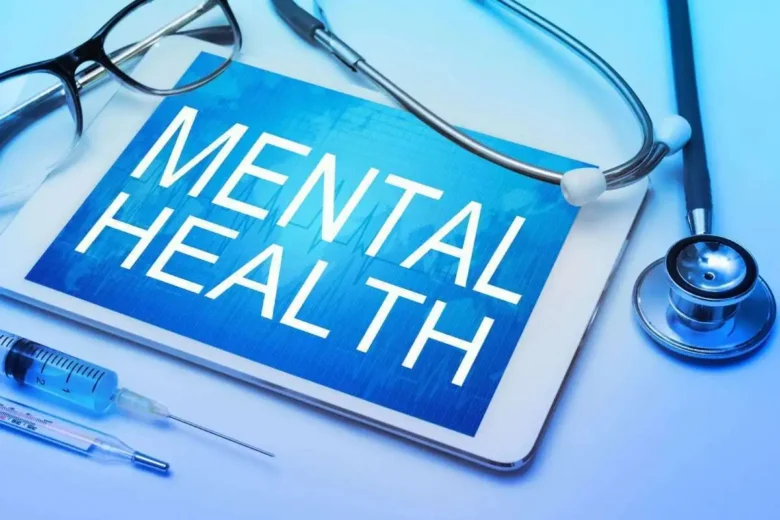Taking care of your mental health isn’t selfish; it’s essential. Yet, many people find it difficult to prioritize mental health without feeling guilty. In a world that often celebrates hard work and busyness, taking time to rest, set boundaries, and restore your mental state can feel like a luxury or even a weakness. But the truth is, mental health affects every aspect of your life, from work and relationships to your overall health and well-being.
One of the most self-respecting things you can do is learn how to prioritize your mental health without feeling guilty. This article explores why we feel guilty when we try to take care of ourselves, and how you can change your thoughts and behaviors to maintain your emotional well-being.
Why do you feel guilty about putting yourself first?
People often feel guilty when they think they’ve done something wrong, even when they haven’t. Many people believe that self-care for your mental health is a sign of laziness, weakness, or complacency. This feeling can be exacerbated by cultural messages, family beliefs, or personal demands that you always be present, useful, or in control.
Taking breaks, saying no to extra commitments, or prioritizing therapy can leave you feeling like you’re shortchanging others or not doing “enough.” Prioritizing your mental health, however, isn’t a violation of your duty. In fact, it makes you more alert, successful, and mentally strong in all areas of your life.
Truth: Self-care isn’t a reward; it’s a responsibility
Caring for your mind shouldn’t wait until you’ve checked off your to-do list. Caring for your mental health is just as important to your long-term health and balance as healthy eating and getting enough sleep. Taking care of your mental health daily makes you stronger and better equipped to face life’s challenges.
Rather than seeing self-care as an excuse to avoid responsibility, it can be helpful to see it as an essential part of your well-being. Taking care of your mental health daily can keep you stable and focused, just like changing your car’s oil can prevent it from breaking down again.
How to Prioritize Your Mental Health Without Feeling Guilty
Making time for your mental health requires a shift in your mindset and daily behavior. Recognizing that your needs are real and that mental breaks are just as important as physical ones is a crucial step.
Start by setting reasonable boundaries. This might mean saying “no” to certain activities, turning off your work email after work, or saying no to extra tasks when you already have a lot to do. Calmly and confidently saying “no” is a skill that protects your mental space without needing a reason.
Include small, kind acts in your day. Think about creating a calming ritual in the morning, taking a walk at lunch, or taking five minutes between chores to breathe and clear your head. The details of these habits don’t matter; just stick with them every time.
You can also schedule mental checkups like you would a doctor’s appointment. By setting aside time once a week for therapy, journaling, or meditation, you ensure you’re always paying attention to your well-being, not just when things are going wrong.
Setting and maintaining healthy boundaries is essential for emotional health
There are no barriers outside of boundaries. These rules help you conserve your energy, time, and mental strength. By setting appropriate boundaries around work, home, and even social media, you can give yourself time to rest and reflect without feeling exhausted all the time.
One way to help is to practice setting boundaries without feeling guilty. Without going into too much detail, express your needs in a calm tone: “I’m not available tonight because I need time to recharge.” This shows that you respect yourself and makes it clear what others should do.
Setting clear boundaries for yourself can help you avoid stress and manage your emotions. You’ll have better relationships with yourself and the people around you.
What the data says about emotional health and overwork
Research has repeatedly shown that prioritizing your mental health can improve your life. The American Psychological Association states that people who regularly take care of themselves have less stress, better control of their emotions, and are happier in life.
On the other hand, chronic worrying and not caring about your emotions can increase your risk of sadness, anxiety disorders, and heartbreak.
| Lifestyle Factor | Self-Neglect | Mental Health Prioritization |
|---|---|---|
| Emotional energy | Depleted and reactive | Recharged and responsive |
| Physical health | Weakened immune system | Improved resilience and energy |
| Relationships | Tension and miscommunication | Healthy boundaries and emotional support |
| Work productivity | Burnout and disengagement | Focused and sustainable performance |
| Overall well-being | Fatigue, anxiety, and guilt | Stability, clarity, and confidence |
Let Go of the Myth That You Must Do It All
Trying to be everything to everyone is unsustainable. The idea that success or worth is tied to constant productivity leads to exhaustion and emotional breakdowns. It’s okay to rest. It’s okay to ask for help. It’s okay to not be okay—and to take action to improve that.
Letting go of perfectionism and embracing self-compassion allows you to be more authentic, creative, and joyful. When you stop equating busyness with value, you create space to grow in healthier, more meaningful ways.
FAQs: Prioritizing Mental Health Without Guilt
Why do I feel selfish for focusing on myself?
This feeling often stems from cultural or family conditioning that values self-sacrifice. But taking care of yourself enhances your ability to care for others. It’s not selfish—it’s responsible.
What if others don’t understand my boundaries?
You can’t control how others react, only how you communicate. Be kind but firm. Over time, those who respect you will adjust and appreciate your honesty.
Is it okay to say no even if I have free time?
Yes. Resting or doing nothing is still valid use of time. You don’t have to fill every open moment with productivity to justify it.
Can I prioritize mental health while managing a busy schedule?
Absolutely. Even five minutes of mindful breathing, journaling, or walking can make a difference. It’s not about time—it’s about intention and consistency.
How do I stop feeling guilty about therapy or self-care?
Remind yourself that emotional health is essential. Therapy is a sign of strength, not weakness, and regular self-care builds long-term resilience.
Conclusion: Make Mental Health a Non-Negotiable
You don’t need to apologize for taking care of your mental health. In fact, you owe it to yourself and those around you to be your most present, grounded, and emotionally strong self. Guilt has no place in your well-being routine.
Prioritizing mental health is not a detour from life’s responsibilities—it’s the fuel that powers everything you do. By learning to honor your emotional needs, set boundaries, and make space for yourself, you can lead a more balanced, joyful, and fulfilled life—guilt-free.
References
- American Psychological Association – Self-Care and Mental Health
https://www.apa.org/topics/self-care - World Health Organization – Mental Health and Well-being
https://www.who.int/health-topics/mental-health - National Alliance on Mental Illness (NAMI) – Taking Care of Your Mental Health
https://www.nami.org/Your-Journey/Individuals-with-Mental-Illness/Taking-Care-of-Your-Body




